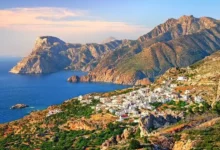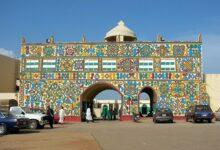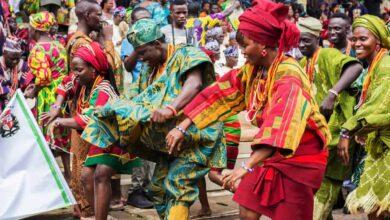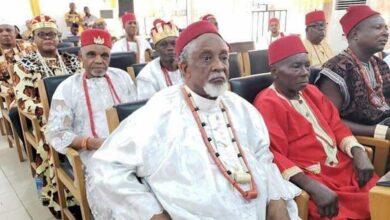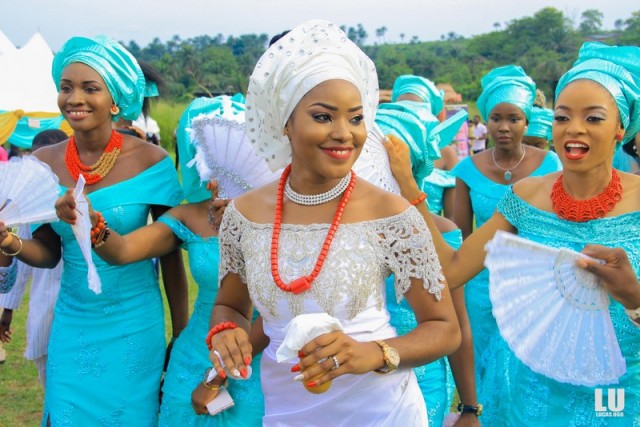
15 Most Beautiful Cultures in Nigeria
15 Most Beautiful Cultures in Nigeria – Nigeria, the giant of Africa, is a nation teeming with a rich tapestry of cultural heritage. From the Hausa-Fulani in the north to the Yoruba in the west and the Igbo in the east, Nigeria is a melting pot of traditions, languages, and customs. In this article, we will delve into the vibrant tapestry of Nigeria’s cultural landscape, highlighting 15 of the most beautiful cultures that make this country truly unique. Each culture offers its distinctive aesthetics, rituals, music, and attire, contributing to the mesmerizing allure of Nigeria’s cultural mosaic. Information Guide Nigeria
The 15 Most Beautiful Cultures in Nigeria are:
Read Also: 15 Most Expensive Water in the World
👉 Relocate to Canada Today!
Live, Study and Work in Canada. No Payment is Required! Hurry Now click here to Apply >> Immigrate to Canada1. Yoruba Culture:
The Yoruba people, predominantly found in southwestern Nigeria, have a captivating culture that spans centuries. Known for their colorful festivals, intricate beadwork, and iconic traditional attire, the Yoruba culture is a celebration of artistic expression. Their mythology, music, and dance forms, such as the famous Bata and Sango drums, showcase the vibrant spirit of this cultural group.
2. Igbo Culture:
The Igbo people, hailing from southeastern Nigeria, boast a culture deeply rooted in spirituality and community. With their vibrant masquerades, mesmerizing folktales, and famous Igbo highlife music, the Igbo culture is an embodiment of resilience and creativity. The Igbo cultural festivals, such as the New Yam Festival (Iwa Ji) and the Mmanwu Festival, are marked by colorful costumes, energetic dances, and intricate rituals.
Read Also: Top 15 Blood Tonic Capsule in Nigeria
3. Hausa-Fulani Culture:
The Hausa-Fulani, primarily residing in northern Nigeria, has a captivating blend of Islamic traditions and ancient customs. Their rich cultural heritage is reflected in the architectural marvels of cities like Kano and Zaria. Hausa-Fulani culture is also famous for its unique art forms, including traditional weaving, leatherwork, and vibrant pottery. The beauty of their weddings, marked by elaborate henna designs and regal attire, is a sight to behold.JAMB Result
4. Ibibio Culture:
The Ibibio people, indigenous to the Akwa Ibom State, are known for their vibrant culture deeply intertwined with nature. Their Ekpo masquerades, adorned with colorful costumes and masks, add an aura of mystique to their festivals. The Ibibio culture celebrates storytelling, music, and dance, with the Ekombi dance being a popular cultural expression. Traditional cuisine, such as Afang soup and Edikang Ikong, offers a delicious insight into their culinary traditions.
5. Tiv Culture:
The Tiv people, hailing from Benue State, have a captivating culture that celebrates agriculture and community. Their vibrant cultural festivals, like the Kwagh-Hir festival, showcase the Tiv people’s creativity through puppetry and traditional dances. Tiv artistry is also evident in their intricate carvings and pottery. The Tiv people’s deep respect for nature is reflected in their traditional beliefs and rituals, which are centered around the natural world.
6. Efik Culture:
The Efik people, residing in Cross River State, have a culture steeped in history and tradition. Their elaborate traditional weddings, known as the Ekpe masquerade, are characterized by regal attire and breathtaking dances. The Ekpe society, a secretive institution, plays a significant role in the Efik culture. The Calabar Carnival, an annual extravaganza, brings together various cultural groups, showcasing the diversity and beauty of Nigerian culture.
7. Kanuri Culture:
The Kanuri people, predominantly residing in northeastern Nigeria, have a rich cultural heritage dating back to ancient times. Known for their elaborate architecture, such as the Kanem-Bornu Empire’s palace ruins, the Kanuri people have a strong connection to their historical roots. The Bunu festival, celebrated by the Kanuri, is a grand display of traditional music, dance, and horse riding. Their unique traditional attire, known as the Babban Riga, adds to the visual splendor of their culture.
👉 Relocate to Canada Today!
Live, Study and Work in Canada. No Payment is Required! Hurry Now click here to Apply >> Immigrate to CanadaRead Also: 15 Best Accredited School of Nursing in Nigeria
8. Ijaw Culture:
The Ijaw people, living in the Niger Delta region, have a culture intricately linked with the waterways and mangrove forests. Their vibrant festivals, such as the Izon Owei, celebrate the Ijaw people’s deep spiritual connection to the environment. Traditional dances, like the famous Odi dance, and art forms, such as the Izon beadwork and wood carvings, are expressions of their cultural identity. The Ijaw cuisine, known for its seafood delicacies, is a delightful exploration of their culinary traditions.
9. Itsekiri Culture:
The Itsekiri people, residing in the Niger Delta region, have a rich cultural heritage that intertwines with their history as a seafaring community. Their vibrant Olu of Warri coronation ceremony, with its colorful processions and ceremonies, showcases the regality of their culture. Itsekiri artistry is reflected in their intricate brass and ivory carvings, while their traditional dances, such as the Omuanko dance, captivate audiences with their energetic rhythms.Love messages
10. Nupe Culture:
The Nupe people, residing in Niger State, have a captivating culture that reflects their historical prominence as a trading kingdom. The Etsu Nupe coronation ceremony is a grand spectacle filled with colorful attire and traditional rituals. Nupe music, characterized by instruments like the Goge and Kakaki, evokes a sense of nostalgia and cultural pride. The unique architecture of the Bida Emirate’s palace and the traditional dyeing technique known as Kofa add to the beauty of Nupe culture.
11. Urhobo Culture:
The Urhobo people, living in Delta State, have a culture deeply rooted in their agricultural traditions and mythology. Their Ovwioru festival, celebrating the annual return of the native deity, is marked by colorful processions and traditional dances. Urhobo music, with its distinct percussion instruments and melodic rhythms, is a testament to their artistic prowess. Traditional attire, adorned with intricate beadwork and embroidery, adds a touch of elegance to their cultural heritage.Ivan Toney brands FA ban ‘spiteful’, targets 2026 World Cup
12. Berom Culture:
The Berom people, residing in Plateau State, have a culture characterized by their farming traditions and intricate art forms. The Nzem Berom festival is a vibrant celebration of their harvest season, featuring traditional dances and music. The Berom people are known for their exceptional pottery skills, intricate beadwork, and traditional architectural designs. Their traditional clothing, adorned with colorful patterns, reflects their artistic sensibilities.Which State Has the Best Weather in Nigeria?
13. Gwari Culture:
The Gwari people, primarily found in Abuja and Niger State, have a unique culture that blends their agricultural roots with modern influences. The Gwari people’s vibrant Kuchichawa festival is a showcase of their traditional dances and music. Their indigenous art forms, such as basketry and weaving, highlight their craftsmanship. Gwari weddings are characterized by colorful attires and intricate henna designs, encapsulating their cultural splendor.
14. Efut Culture:
The Efut people, residing in Cross River State, have a rich cultural heritage rooted in their historical connection to the Efik Kingdom. Their annual Leboku festival is a vibrant display of dance, music, and cultural exhibitions. The Efut people’s traditional attire, known as the Ekoi, features intricate designs and vibrant colors. Traditional cuisine, including delicacies like Afia Efere (white soup), offers a tantalizing experience of their culinary traditions.
15. Ogoni Culture:
The Ogoni people, living in Rivers State, have a unique cultural identity closely tied to their struggle for environmental justice and self-determination. Their cultural festivals, such as the Ogoni Day Celebration, showcase their resilience and commitment to preserving their heritage. Ogoni music, characterized by its percussive rhythms and soulful melodies, reflects their cultural expressions. Traditional arts and crafts, such as the Ogoni beadwork and mask carving, highlight their artistic ingenuity.
Conclusion:
Nigeria’s cultural landscape is a captivating mosaic of traditions, customs, and artistic expressions. The 15 cultures discussed in this article offer a glimpse into the enchanting diversity that makes Nigeria truly beautiful. Each culture’s unique festivals, art forms, music, dance, attire, and culinary traditions contribute to the vibrancy and richness of Nigerian culture. Exploring these cultures allows us to appreciate the depth of human creativity, resilience, and interconnectedness. Nigeria’s cultural heritage is a testament to the power of diversity, fostering unity and celebrating the beauty of the human experience.
Check: JAMB Result
Check and Confirm: How much is Dollar to Naira today

